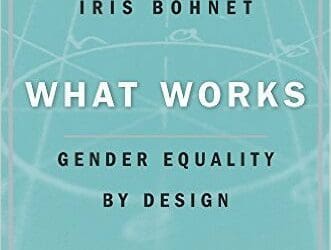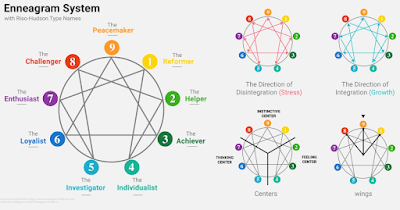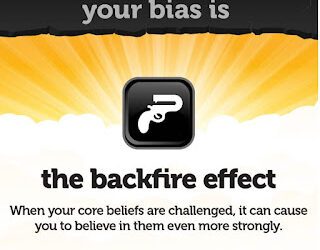
Let’s just jump right in and start talking about sex.
Christians believe that God is good, designed us, and gave us moral instructions, including sexual instructions, presumably based on the way He designed us. Therefore, the moral laws in the Bible will probably lead to the greatest human flourishing. While this is not necessarily true, it probably is for every moral law in the Bible. This means that the moral laws given in the Bible are scientifically testable claims, at least to some extent, and sex is no exception.
There are lots of possible options for sexual relationships. People can be promiscuous, polygamous, serially monogamous (several monogamous relationships at different times in life), monogamous, celibate, or practice any number of other options that blend aspects of these throughout their lives. Despite what is practiced or prescribed, we can scientifically test which option is best for human flourishing.
If the Bible was inspired by an all-knowing and all-good God who created the world and everything in it, then His moral laws regarding sexual relationships should also be what is best for human flourishing. Let’s test this hypothesis to see if it’s true.
What’s the Bible Say?
Most people have a general idea what the Bible says about sex, but it’s still important to lay the foundation. In order to get a full picture of the biblical view, several verses need to be understood in their context, so rather than a long systematic theology-type analysis, I’ll just summarize the biblical view. Basically, the Bible says that sex is supposed to be reserved for life-long monogamous marital relationships and any sexual acts with another person outside of a marriage is wrong.
What about homosexuality, pornography, and masturbation? For the purpose of this article, I am not going to discuss the topic of homosexuality, although some of what I say will be relevant to that topic. As for pornography, it does include another person and will be part of the discussion. Masturbation, on the other hand, often does include porn or fantasies about other people, but doesn’t necessarily include those things so it will tangentially relate to what is discussed below.
What’s the Science Say?
The science of sex comes from two main sources. The first evaluates the mental health, behavioral, and marital outcomes of having sex at different points in life with different partners. The other looks at the neuroscience of sex and offers explanations for the outcomes we observe.
Contrary to popular beliefs about sex, as opposed to scientifically supported beliefs, having fewer sexual partners, waiting longer to have sex, and ideally, waiting until marriage to have sex is pretty much unanimously associated with positive benefits. I say pretty much because there might be some negative factors, especially for some individual cases, but I didn’t really see any. People who wait actually have better sex lives when they are married, have better mental health in their youth and in adulthood, are less depressed and less likely to commit suicide, are less likely to get divorced, report higher marital satisfaction, and are less likely to engage in other risky behaviors. These effects are even stronger for females, so having sex before marriage is more harmful for females than for males.
Why would this be the case? There are several factors that play a role, but I think the best explanation is biological. When we have sex and have an orgasm, vasopressin and oxytocin, known as the bonding hormones, are released in our brains and bond us to our sexual partners. The more we have sex, the more bonded we become. However, when we end a sexual relationship, it is harder for us to cope and negatively affects our ability to bond with another person in the future, at least to some extent. If we keep creating and separating such bonds, we become desensitized to it and have a decreased response so that it becomes harder to bond with our marital partner.
The other thing that happens when we have sex before marriage, or early in a relationship, is that we become more committed to the relationship than we should be. Let’s say you are dating for 3 months and you’re about 50/50 on whether you want to marry your partner, so you decide to give sex a try to see if you’re “sexually compatible.” Unless something goes terribly wrong, which probably won’t happen, having sex will create a stronger bond between you two and increase your confidence that you should marry this person. Unfortunately, and quite probably, you will realize in a few months, or possibly a few years and after you’ve already married, that you shouldn’t have married this person.
No matter how sure, or unsure you are about marrying your partner, sex is pretty much guaranteed to make you more sure, but if you’re not really all that compatible, this is not a good thing. Having sex makes breaking up harder and less likely, even in cases when people should break up. Then, every time you have sex with someone else, you are creating a similar bond with that person and potentially breaking it.
Here’s where porn plays a role because porn has these same effects, assuming that a person masturbates while viewing or fantasizing about it. Your involuntary parts of the brain don’t know the difference between having sex with a person or masturbating to a picture or video of them so the same hormones and neurotransmitters are released creating bonds with random people and therefore, inhibiting a person’s future ability to bond with a marital partner. On top of that, viewing pornography creates false and heightened expectations for sexual interaction which leads to lack of sexual fulfillment, it is associated with infidelity, and associated with decreased marital commitment. Additionally, there is some evidence, but it’s mixed, suggesting that pornography is might increase rape and sexual aggression, presumably due to the objectification and abuse of women often depicted in porn.
Orgasms also cause the release of dopamine in the nucleus accumbens, the reward center of the brain. This is the same thing that happens in the brain with addiction. Because of the private and solitary nature of porn, it can be very addictive and extremely hard for people to overcome. The organization, Fight the New Drug, focuses all its effort on the issues associated with porn and is a good resource.
What about benefits of other types of relationships? Only a handful of articles showed benefits or equal outcomes of nonmonogamous relationships. The issue with these results is that benefits for nonmonogamous relationships were on outcomes not related to overall well-being, but were things such as increased use of birth control, STD testing, or relationship satisfaction, but they didn’t compare their groups to people in monogamous marriages or compare based on number of sex partners. In other words, they excluded the people who experience the best outcomes in overall well-being. So if you have two groups of sexually active people, but one group is monogamous and the other is not, then it appears these groups fair about the same when averaged out over various outcomes.
What if I’ve had sex outside of marriage or been married before?
If you have or are currently sinning sexually, or if you’ve been married before, will this ruin your future marriage (if you decide to get married)? No, it won’t, or at least, it doesn’t have to. These things can be overcome. In some cases, it might be extremely hard and in others, it might be fairly easy. The first step is to stop sinning right now and seek professional help from a psychologist if necessary. If and when you decide to enter a relationship or get married, be sure to address your sexual history with your partner and take conscious steps to overcome potential barriers from your past.
Conclusion
The science strongly supports waiting longer to have sex and having fewer partners. It also supports waiting until marriage, but this isn’t as strongly supported. I didn’t mention it because it’s what most people hear, but sex outside of marriage also contributes to STDs, unwanted pregnancies, and all the negative effects associated with these such as abortions, guilt and shame, decreased education and income (for single mothers), and so on. The reasons for waiting far outweigh the reasons for having sex, so if you are having sex outside of marriage, or thinking about it, I hope this helps you. It might also be helpful for parents to tell their teens so they don’t just think the Bible is a bunch of dogma.
The Bible, written between 3500 and 2000 years ago, provides a model for sex and marriage that makes perfect sense based on our biology and is scientifically shown to lead to the best outcomes, yet the authors had no knowledge of this. None of the other models for sex and marriage can be supported with such strong empirical evidence, nor do they even make sense once we understand the biology of the brain (and if you think about it, the biology makes a good case for couples to have lots and lots of sex once they’re married).
Is this absolute proof the Bible is inspired by God? No. Perhaps the Bible got it right due to chance or some other factors such as just accepting cultural norms. This seems quite unlikely since sex practices were extremely diverse and perverse (such as the acceptance of pedophilia) in the time and place the Bible was written. While there can be possible explanations for how the Bible got this right, the best one is that it was inspired by Our Designer.
I mentioned on Facebook that I am focusing on abortion this week, and I am because sex is what leads to pregnancy and the desire for some people to have an abortion. My next article will look specifically at abortion and some practical things people can do to help prevent it.
References
Here’s just some of the many resources available. These are just the ones I used directly in my research; however, there were seriously so many available that said that same thing over and over again. Only a handful challenged the notion that sex might not be so detrimental, but usually only questioning gender effects or the strength of the effects. In other words, they still admitted sex outside of marriage had negative effects, but they argued the effects weren’t quite as strong and/or were limited mostly to females.
-Braithwaite, S. R., Coulson, G., Keddington, K., & Fincham, F. D. (2015). The influence of pornography on sexual scripts and hooking up among emerging adults in college. Archives of sexual behavior, 44(1), 111-123.
-Braithwaite, S. R., Aaron, S. C., Dowdle, K. K., Spjut, K., & Fincham, F. D. (2015). Does pornography consumption increase participation in friends with benefits relationships?. Sexuality & Culture, 19(3), 513-532.
-Hallfors, D. D., Waller, M. W., Bauer, D., Ford, C. A., & Halpern, C. T. (2005). Which comes first in adolescence—sex and drugs or depression?. American journal of preventive medicine, 29(3), 163-170.
-Jose, A., Daniel O’Leary, K., & Moyer, A. (2010). Does premarital cohabitation predict subsequent marital stability and marital quality? A meta‐analysis. Journal of Marriage and Family, 72(1), 105-116.
-Shulman, S., Seiffge-Krenke, I., & Walsh, S. D. (2017). Is Sexual Activity During Adolescence Good for Future Romantic Relationships?. Journal of youth and adolescence, 46(9), 1867-1877.
-Ramrakha, S., Paul, C., Bell, M. L., Dickson, N., Moffitt, T. E., & Caspi, A. (2013). The relationship between multiple sex partners and anxiety, depression, and substance dependence disorders: A cohort study. Archives of sexual behavior, 42(5), 863-872.
-Rasmussen, K. (2016). A historical and empirical review of pornography and romantic relationships: Implications for family researchers. Journal of Family Theory & Review, 8(2), 173-191.
-Teachman, J. (2003). Premarital sex, premarital cohabitation, and the risk of subsequent marital dissolution among women. Journal of Marriage and Family, 65(2), 444-455.
-Yucel, D., & Gassanov, M. A. (2010). Exploring actor and partner correlates of sexual satisfaction among married couples. Social Science Research, 39(5), 725-738.
-Conley, T. D., Matsick, J. L., Moors, A. C., & Ziegler, A. (2017). Investigation of consensually nonmonogamous relationships: Theories, methods, and new directions. Perspectives on Psychological Science, 12(2), 205-232.
-David Rodrigues, Diniz Lopes & C. Veronica Smith (2017) Caught in a “Bad Romance”? Reconsidering the Negative Association Between Sociosexuality and Relationship Functioning, The Journal of Sex Research,54:9, 1118-1127, DOI: 10.1080/00224499.2016.1252308
-Moors, A. C., Matsick, J. L., & Schechinger, H. A. (2017). Unique and shared relationship benefits of consensually non-monogamous and monogamous relationships. European Psychologist.
-Haupert, M. L., Moors, A. C., Gesselman, A. N., & Garcia, J. R. (2017). Estimates and correlates of engagement in consensually non-monogamous relationships. Current Sexual Health Reports, 9(3), 155-165.
-Muise, A., Laughton, A. K., Moors, A., & Impett, E. A. (2018). Sexual need fulfillment and satisfaction in consensually nonmonogamous relationships. Journal of Social and Personal Relationships, 0265407518774638.
-Wood, J., Desmarais, S., Burleigh, T., & Milhausen, R. (2018). Reasons for sex and relational outcomes in consensually nonmonogamous and monogamous relationships: A self-determination theory approach. Journal of Social and Personal Relationships, 35(4), 632-654.
-World Family Map showing highly religious couples most sexually satisfied. https://ifstudies.org/ifs-admin/resources/reports/worldfamilymap-2019-051819final.pdf



